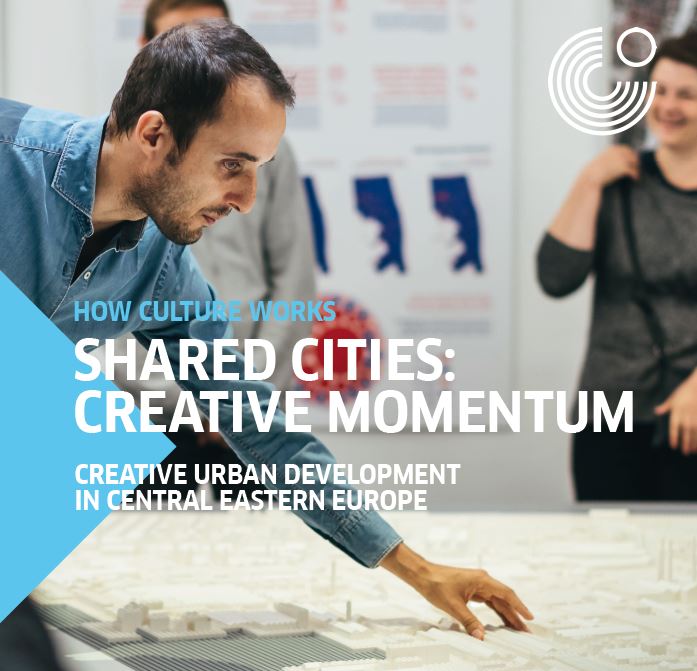
How Culture Works
"DOES EVERYTHING ALWAYS HAVE TO BE ASSESSED?" No. But when cultural work is financed with public funds, there is a necessity to evaluate.
Prague Permanent linkBINA has launched an experimental Urban Hub programme enhancing open urban spaces through cooperation with local communities. The goal is to explore ways of putting a "right to the city" into practice on the outskirts of Belgrade.
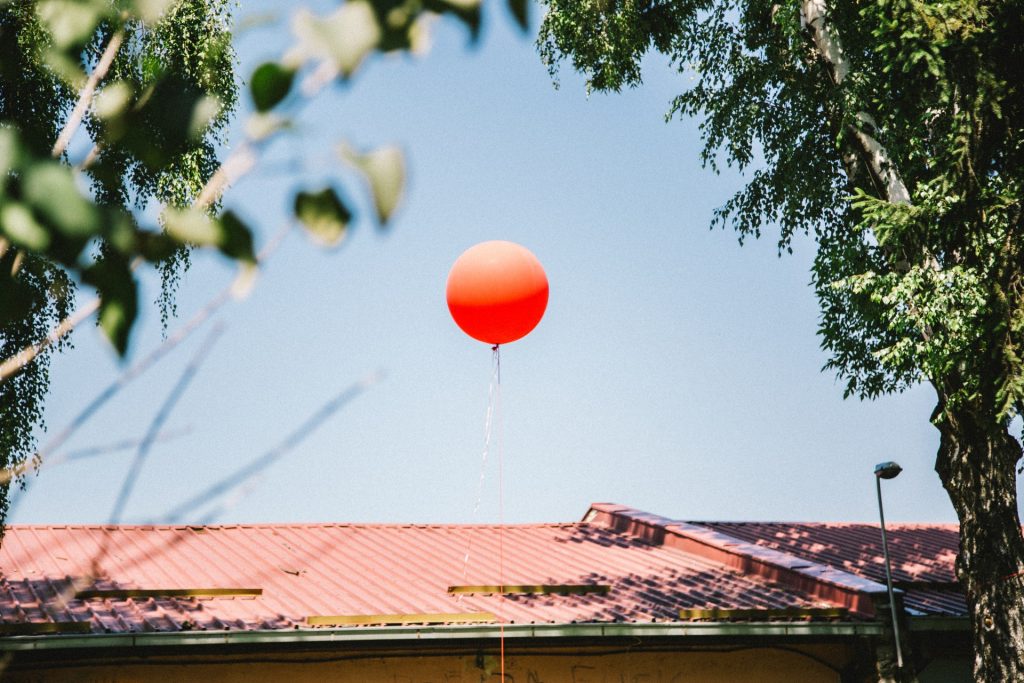
©Škograd
Ledine is a kind of place you don’t see in Central Europe often. After local and state governments failed to provide housing first for refugees fleeing from Yugoslav war zones in the 1990s, then for internally displaced people from Kosovo in the early 2000s and, lately, for returnees from Western Europe, newcomers to the area have resorted to building their own homes. Processes and patterns of self-provided housing characterize the area.
Without effective support or public interest, locals took the initiative and responsibility for building their shared infrastructure. These processes have lasted almost a quarter of a century. They created a new and irreversible urban condition shaped by internal dynamics of intertwined individual and collective interests. As a consequence, public space and public goods have been jeopardized. This was the reason behind choosing a local schoolyard to be turned into an island of shared neighborhood life as the locus of our Urban Hub program.
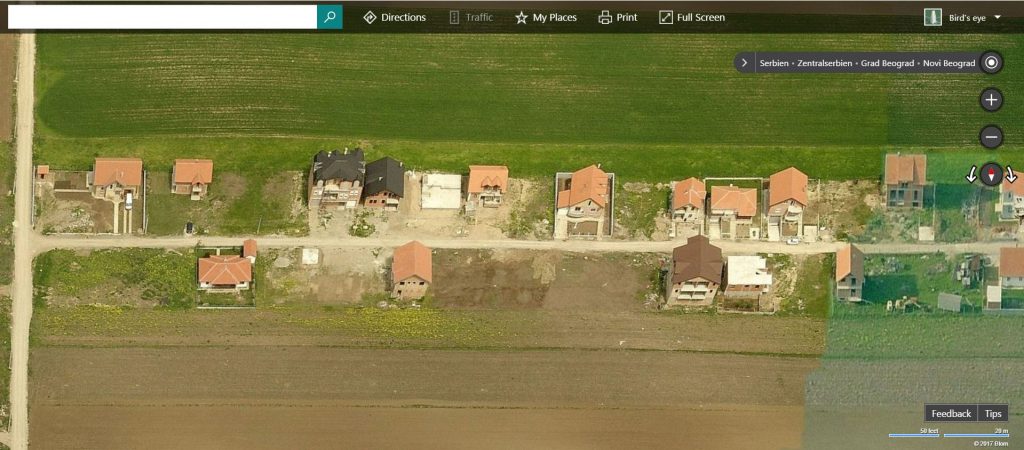
Self-providing houses in Ledine © Bing Maps imagery

School in Ledine © Škograd
The Urban Hub programme carries on
Together with the team of Škograd, BINA will develop and manage the second Urban Hub. Knowledge acquired during this project will foster an active approach towards city development through citizens’ participation. It will open up space for a quality-driven and engaged approach to decision making about future development of Belgrade.
Preparations of Urban Hub #2 have started in February 2018. Cooperation with local communities will begin in May during BINA 2018 FROM COMMUNIS TO COMMUNICATION and will run for 6 months. The goal is to improve shared infrastructure around the only public institution in the area and to advocate for the preservation of public space and public good in Belgrade. The process of renewal will be documented, published and exhibited at BINA 2019 and at other events of Shared Cities: Creative Momentum.
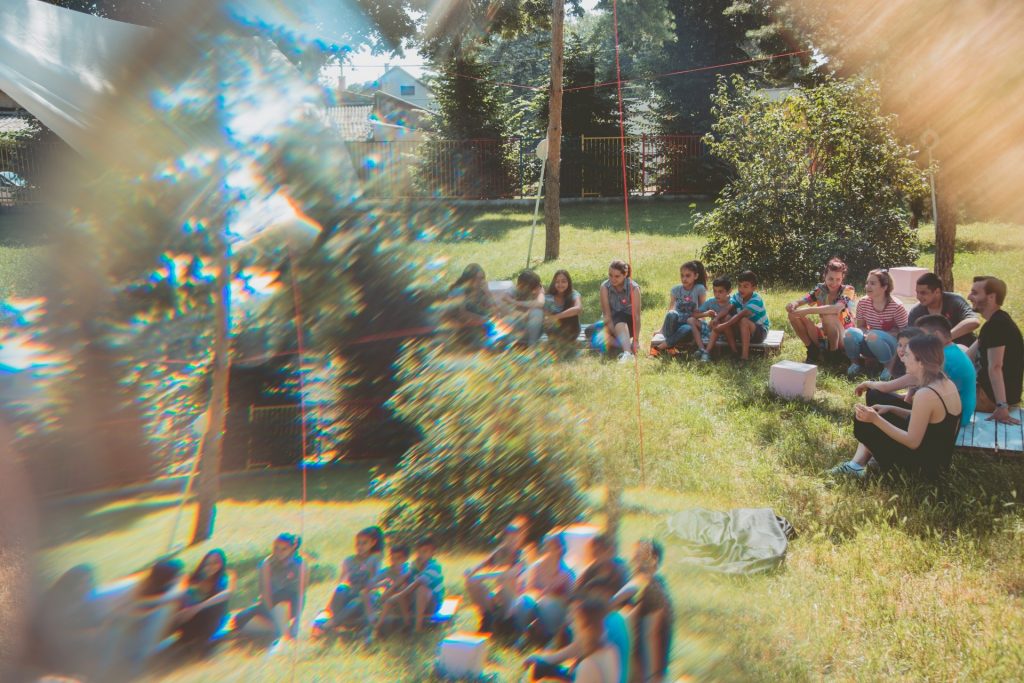
School Yard in Ledine, Belgrade © Škograd
About Škograd
In 2016, the team of Škograd came together in an effort to address the trend of social segregation and its effects on the local school in Belgrade’s suburban neighborhood of Ledine. The team has led action research by working with local children, neighbours and school staff during workshops and group dialogue in order to explore and exercise our shared needs and desires. Relations of trust that emerged from these activities have inspired a growing feeling of hope in the neighborhood. This encouraged the team to focus their efforts this year on creating a permanent public space intervention that will embody this growing hope and strengthen the bond between the neighbourhood and the school together with the BINA team.
Škograd’s action research work started as a collaborative effort of three collectives: School of Urban Practices – City Guerilla, Škogled and Political Space Matters with the last refuge of public space and public service in Ledine, the local elementary school Vlada Obradović Kameni. In collaboration with the school staff and local children, they work on exploring shared paths towards the improvement of living conditions in the area. The team gathers professionals from the fields of architecture, urban studies, psychology, philosophy, art, education and design, among many others. Together they have developed a close relationship with the community in Ledine and a partnership with the local school. Their efforts have been supported by non-profits and institutions such as the Goethe-Institut in Belgrade, the Association of Belgrade Architects, the Social Inclusion and Poverty Reduction Unit, Education Forum, and the Center for Drama in Education and Art.

"DOES EVERYTHING ALWAYS HAVE TO BE ASSESSED?" No. But when cultural work is financed with public funds, there is a necessity to evaluate.
Prague Permanent link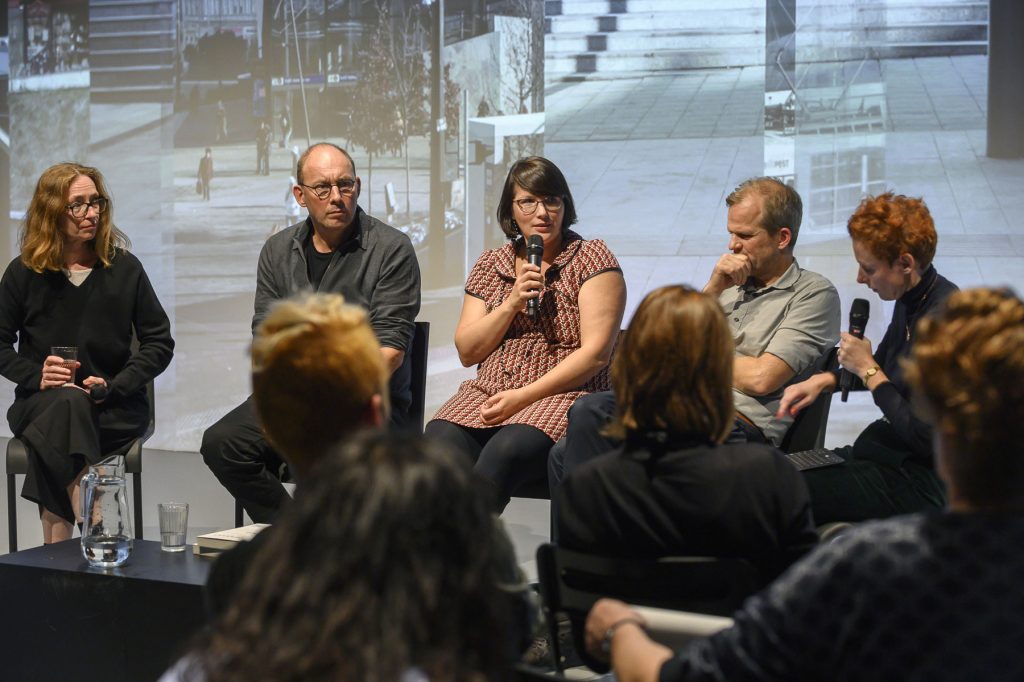
The one-day programme was based on discussion formats with renowned European architecture theorists, curators and urban researchers.
Prague Permanent link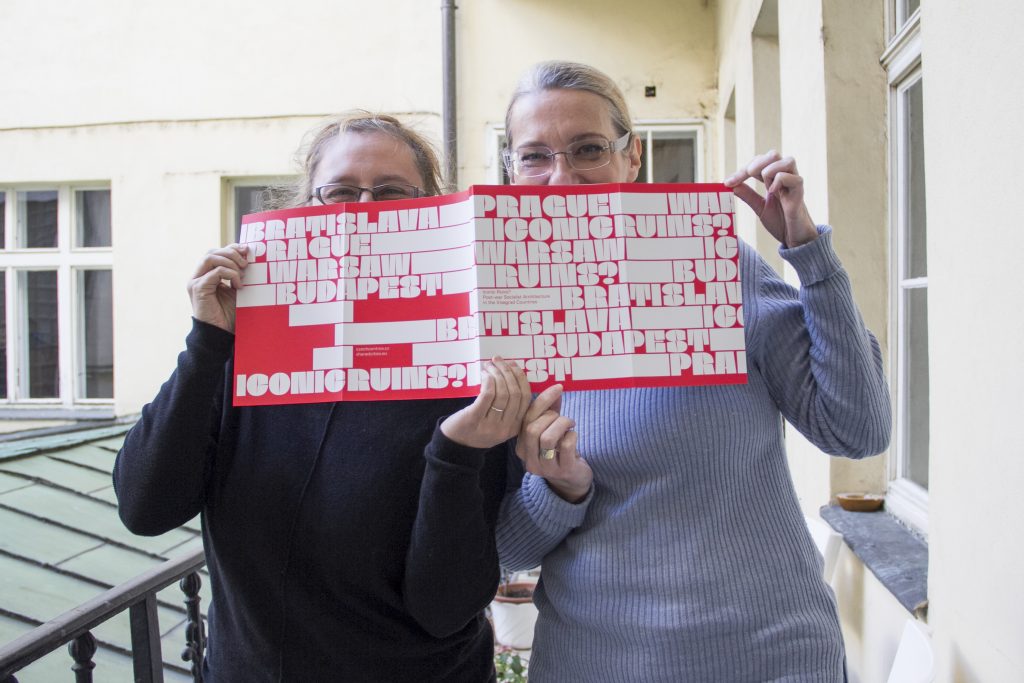
Within Shared Cities: Creative Momentum the Czech Centres realized the "Iconic Ruins?" exhibition and an economic impact evaluation of the project. How does the future of the exhibition look like? What are the benefits of having an economic analysis of the project? Find the answers in the interview with Ivana Černá and Sandra Karácsony from the Czech Centres / Česká Centra in Prague, Czech Republic.
Prague Permanent link